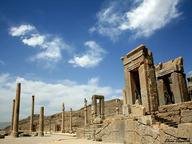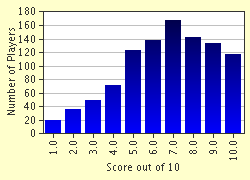Quiz Answer Key and Fun Facts
1. What we know about the Persian Wars all comes from one source, a Greek historian alternately known as the father of history and as the father of lies. How is his name written in English?
2. The Persian Wars began when the Greek inhabitants of conquered cities began revolting against their Persian rulers beginning in 499 BCE. These cities were a part of what territory (now part of Turkey) conquered by Cyrus II?
3. What mainland Greek cities initially tried to protect the rebels from Persian vengeance?
4. The Persians began to march towards Greece in 490 BCE, under the command of Darius I. Did they face united Greek resistance?
5. The Persians met their first defeat in 490 on the plain of Marathon. What experienced soldier - formerly part of Darius's army - led the Greeks to victory on that day?
6. The next Persian assault on Greece came years later, in 480 BCE. By this time the Persian crown had been inherited by what son of Darius I?
7. The new alliance of Greek city-states against the Persian invasion was headed by what city-state?
8. Since the Persians still possessed the advantage of numbers, the Greeks sought to hold them at a place narrow enough that this advantage would be neutralized. What mountain pass did they choose?
9. Soon afterwards, while the Persian army burned Athens and sacked the surrounding countryside, the Athenian general Themistocles was able to lure the Persian fleet into a narrow strait nearby, where they were soundly defeated in what naval battle?
10. Clean-up operations after the wars, including the liberation of Greek cities in modern-day Turkey, were handled by an alliance led by Athens. What was this alliance called?
Source: Author
CellarDoor
This quiz was reviewed by FunTrivia editor
bloomsby before going online.
Any errors found in FunTrivia content are routinely corrected through our feedback system.

